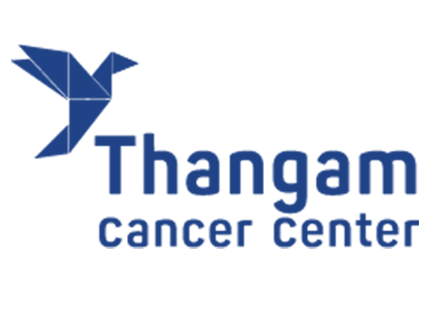Maintaining a balanced diet can be really tough during cancer treatment since chemotherapy and other cancer treatments may cause certain side effects that may decrease your appetite. You may even experience digestive issues and you could feel tired while trying to have food.
Choosing and following good nutrition habits can give you the strength and energy that you might need to fight against cancer. If you follow a good diet you will be able to tolerate the treatment better and it will also help you to lower the risk of infection.
Sustaining a healthy body weight and eating a well balanced diet are important during cancer treatment and prevention. Consuming the right amount of nutrients and calories is also necessary during cancer treatment if you have been losing weight.
Nutrition is something that you will be able to manage even when many other things are not under your control. Best Oncology Hospitals in Dharmapuri such as the Thangam Cancer Center offers its patients cutting-edge cancer treatment and a tailored diet plan so that they can recover soon from side effects or issues that they may have come across during their course of treatment.
You can follow our general tips to manage nausea, diarrhoea and other digestive issues such as constipation and lack of appetite.
1. Manage Your Nausea
You can manage nausea through your diet or you can also take anti-nausea medications to effectively deal with nausea. Adjusting how you eat can be the key to reducing nauseous feeling and eating many small portions throughout the day can help keep nausea at bay.
You can also follow these points to improve your health:
- Sit upright for at least thirty minutes after having your meal.
- Stick to bland foods and try to avoid fragrant foods since nausea is often linked with strong odours.
- Ginger, lemon and mint could also help
- Increase the uptake of fluids
2. Decreased Lack of Appetite
A decrease in appetite could be linked to feelings of nausea or there could probably be other reasons as well. Chemotherapy can cause certain smells or textures that we once found enjoyable to become unpleasant. This can be challenging for you since you will simply not have the internal cue to take any food. You can set external remainders or talk to your caregiver about it.
<b>How can you manage lack of appetite?</b>
Eat small meals throughout the day: These meals should be packed with a lot of calories, protein and other nutrients into a small portion. They should have a high impact on your health and some of the snacks such as dates and nuts can work wonders.
Drink nutrient dense smoothies : Smoothies are easier to digest when compared to solid foods and consuming smoothies can be a good strategy to combat lack of appetite.
Consuming appetite stimulant medications : Some patients may also consider taking medications for appetite issues.
Thangam Cancer Center, one of the best oncology hospitals in Namakkal, has a team of expert dietitians who help you with managing all of the digestive issues after chemotherapy. With their expertise they come up with a personalized diet plan so that you can recover from a lack of appetite.
3. Constipation
Consuming a lot of fibre is usually recommended by dietitians so that you can deal with constipation effectively. Sticking to insoluble fibre that is found in raw fruits, vegetables, nuts, seeds and dried fruits is quite important. Your dietitian may recommend a lot of fluids based on your size. You might have to take around two litres of fluids a day. If you aren’t used to a high-fibre diet then you do not need all that fibre to relieve yourself from constipation
4. Diarrhoea
You should still drink lots of water and other liquids since you will be losing a lot of them while experiencing diarrhoea. Instead of taking insoluble fibres focus on consuming soluble fibres as it will absorb the water that’s present in the digestive tract. These soluble fibres are present in :
- Interior of many fruits such as the apple without skin
- Cooked vegetables
- Consuming nuts such as almonds and walnuts could also help
- Legumes
- Oats
Also, stick to bland foods as they are easy to digest and try taking small meals throughout the day. Avoiding spicy and fatty foods is better as they can stimulate the digestive tract making things worse. Bland foods include :
- Bananas
- Rice
- Applesauce
5. Difficulties While Swallowing
You may face some trouble while swallowing if you are affected by head and neck cancers and this can occur due to various reasons such as surgery, side effects from chemotherapy or radiation. Being one of the Oncology treatment center in coimbatore, Thangam Cancer Center has a team of expert speech pathologists and dietitians who can help if you have any difficulties while swallowing food. They work together to craft personalized diet schedules and exercises that work the best for you.
By following these nutrition tips you can effectively and efficiently manage the digestive issues that you might have to face during treatment.

